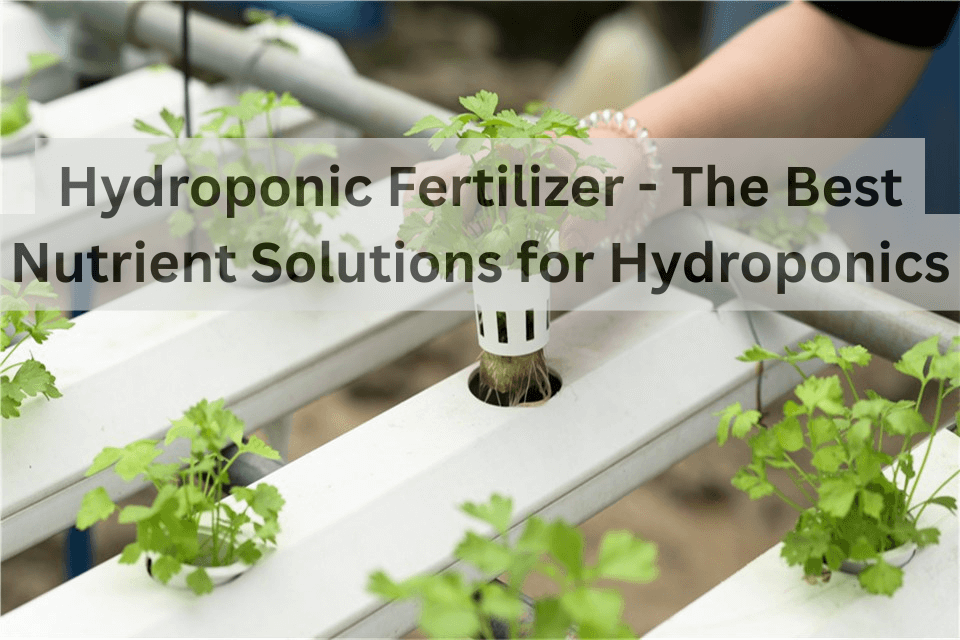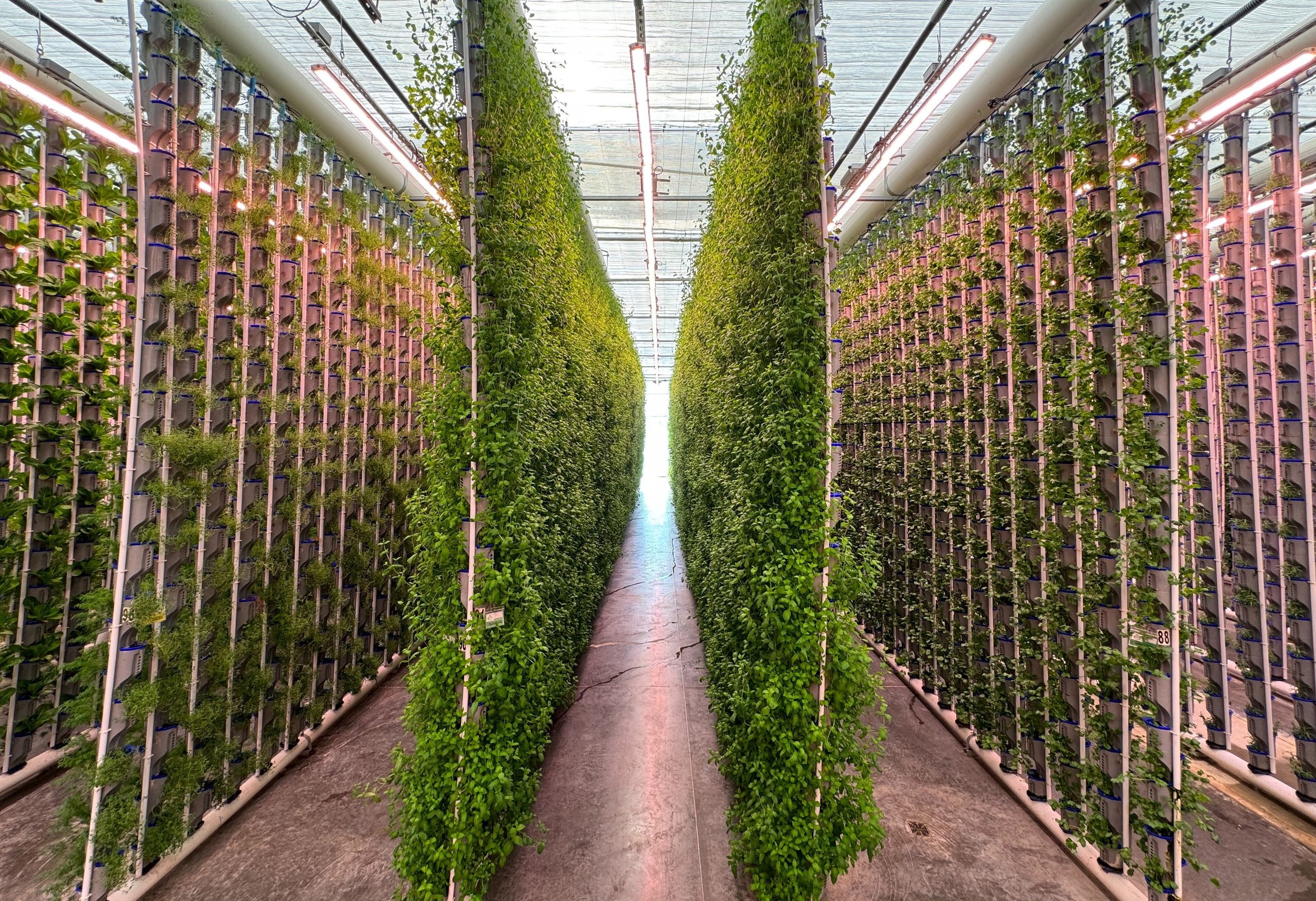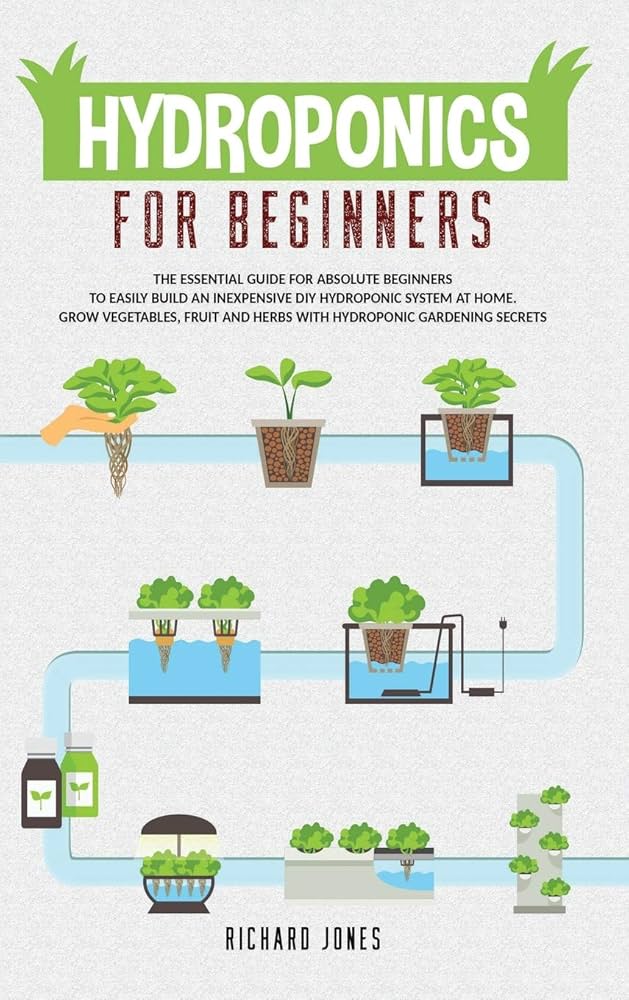Are you ready to unlock the secrets of successful hydroponic gardening? If you’ve ever felt overwhelmed by the myriad of nutrient options available, you’re not alone.
Choosing the best nutrient solution is crucial for your plants’ health and your garden’s productivity. But where do you start? Imagine a lush, thriving garden where every plant is perfectly nourished, growing faster and yielding more than you ever thought possible.
With the right nutrient solutions, this dream can become your reality. Dive into this article to discover the essential nutrient solutions that will transform your hydroponic setup from ordinary to extraordinary. Your garden is waiting to flourish—are you ready to make it happen?

Essential Nutrients For Hydroponics
Plants need macronutrientsto grow strong. These include nitrogen, phosphorus, and potassium. Nitrogen helps plants grow leaves. Phosphorus is important for roots and flowers. Potassium helps with overall plant health. Without these, plants cannot grow well.
Plants also need micronutrients. They are needed in small amounts. Important ones are iron, manganese, and zinc. Iron helps make chlorophyll. Manganese helps in photosynthesis. Zinc helps in making proteins. All these nutrients keep plants healthy.
Types Of Nutrient Solutions
Organic solutions come from plants and animals. They are natural and safe. Synthetic solutions are made in labs. They can be strong and quick. Organic solutions improve soil health. Synthetic solutions give fast results. Both have good and bad sides. Choose based on your needs and goals. Organic is better for the environment. Synthetic can be cheaper and last longer. Think about what matters most for your plants.
Liquid nutrients mix easily in water. They are ready to use. Powdered nutrients need mixing first. They are often cheaper. Liquid nutrients are easy for plants to absorb. Powdered nutrients can be stored longer. Both types provide essential plant food. Liquid nutrients offer quick results. Powdered nutrients can be more precise. Consider storage space and budget. Choose what is best for your setup.
Balancing Ph Levels
The optimal pH range for hydroponic systems is between 5.5 and 6.5. This range helps plants absorb nutrients better. Keeping pH in this range is essential. Plants grow healthy and strong. Always use a pH meter to check the levels.
Adjusting pH is crucial. Use pH up and pH down solutions. These are special liquids. They help balance the pH. Add them slowly to the water. Stir the solution well. Check the pH again after adding. Repeat if needed. Keep plants happy and healthy.

Nutrient Solution Formulas
Different plants need different nutrients. Tomatoes need more calcium. Leafy greens need more nitrogen. Each plant grows better with the right mix. Custom nutrient solutions help plants grow strong.
Pre-made mixes make plant feeding easy. They are ready to use. Just mix with water. Follow the instructions on the pack. These mixes have balanced nutrients. Perfect for beginners. Helps plants grow healthy. No need to measure each nutrient. Saves time and effort. Easy for hydroponics.
Monitoring And Maintenance
Choosing the right nutrient solutions is key to successful hydroponics. Regular monitoring ensures plants receive balanced nutrients. Maintenance helps prevent nutrient imbalances, promoting healthy growth.
Regular Testing And Adjustments
Nutrient solutionsneed regular testing. This ensures plants stay healthy. Check pH levels often. Adjust if needed. Keep an eye on electrical conductivity. This shows nutrient strength. Use meters for accurate readings. Make small changes gradually. Sudden shifts can harm plants. Consistent monitoring prevents issues.
Signs Of Nutrient Deficiency
Plants show clear signs of nutrient deficiency. Leaves might turn yellow. Growth could slow down. Roots may weaken. Watch for curling leaves. Brown spots can appear. Check stems for weakness. These signs need quick action. Correct nutrient imbalance fast. Healthy plants grow better.

Innovations In Nutrient Solutions
Hydroponics uses water to grow plants. No soil needed. Nutrient solutions give plants what they need. New technologies make these solutions better. Smart sensors check water quality. They help keep plants healthy. Automated systems add nutrients when plants need them. This saves time and helps plants grow. LED lights give plants the right light. They help grow strong plants. Hydroponic technologies are always improving. These changes make growing easier.
Many nutrient solutions are eco-friendly. They use fewer chemicals. Organic nutrients are safer for the earth. They help plants grow without harm. Some solutions use recycled water. This saves water and helps the planet. Natural fertilizers are also important. They come from plants or animals. These fertilizers improve plant health. Eco-friendly options help the earth and the plants. Growing can be both smart and kind to nature.
Common Mistakes And Solutions
Choosing the right nutrient solution is crucial in hydroponics. Many beginners use incorrect nutrient ratios, leading to poor plant growth. Stick to balanced nutrients specifically designed for hydroponics to ensure healthy plants.
Overfeeding And Underfeeding
Plants need the right amount of nutrients. Too much food can harm them. Overfeeding often leads to nutrient burn. Leaves turn yellow or brown. Underfeeding can make plants weak and small. They may not grow well. Use the right nutrient mix. Measure carefully each time. Check leaves for color and health. Adjust feeding if needed. Plants often show signs when unhappy. Watch them closely.
Addressing Water Quality Issues
Water is very important for plants. Bad water can hurt plant growth. Always use clean water for hydroponics. Test water for pH level. Check for harmful chemicals. Adjust pH to suit plants. Most like a pH between 5.5 to 6.5. Some plants need different levels. Use filters if needed. This helps keep water clean. Healthy water means healthy plants. Watch for signs of poor water quality. Good water makes plants happy.
Frequently Asked Questions
What Are Hydroponic Nutrient Solutions?
Hydroponic nutrient solutions are water-based mixtures that deliver essential minerals to plants grown without soil. They provide nutrients like nitrogen, phosphorus, and potassium, crucial for plant growth. By optimizing these solutions, growers ensure healthy plant development and maximize yields in hydroponic systems.
How To Choose The Best Nutrient Solution?
Choosing the best nutrient solution depends on plant type and growth stage. Consider balanced formulations for general use and specialized mixes for specific needs. Ensure the solution is compatible with your hydroponic system. Monitor plant health and adjust as necessary to achieve optimal growth.
Why Is Ph Important For Hydroponics?
PH levels affect nutrient availability in hydroponic systems. Proper pH ensures plants can absorb nutrients efficiently. Typically, a pH range of 5. 5 to 6. 5 is ideal for most crops. Regularly monitor and adjust pH to maintain optimal conditions for healthy plant growth.
Can Organic Nutrients Be Used In Hydroponics?
Yes, organic nutrients can be used in hydroponics. They provide natural minerals from sources like compost or seaweed extract. Organic solutions may require careful management to prevent clogs in systems. They can enhance plant growth while promoting sustainability and environmental health.
Conclusion
Choosing the right nutrient solution boosts hydroponic success. It ensures healthy plant growth. Experiment with different solutions. Find what works best for your crops. Consistency is key. Regularly monitor and adjust nutrient levels. This keeps plants thriving. Remember, each plant species has unique needs.
Tailor solutions accordingly. Always use clean water. It prevents contamination. Quality nutrients make a big difference. Keep learning and adapting. Hydroponics is a journey. Enjoy the process. Happy growing!
Read More:
- Best Home Water Filtration Units: Top Picks for Clean Water
- Diy Hydroponic Grow System Guide: Cultivate Success
- Mini Hydro System Feasibility Study: Unlocking Eco Solutions
- Chemical Dosing Pump Pricing Guide: Maximize Your Investment
- Diaphragm Pump Cost Comparison: Affordable Options Unveiled
- Hydroelectric Dam Maintenance Cost Analysis: Cutting Costs
- Commercial Water Filtration System Cost: Save Money Today
- Diaphragm Pump Maintenance Tips: Ensure Peak Performance



